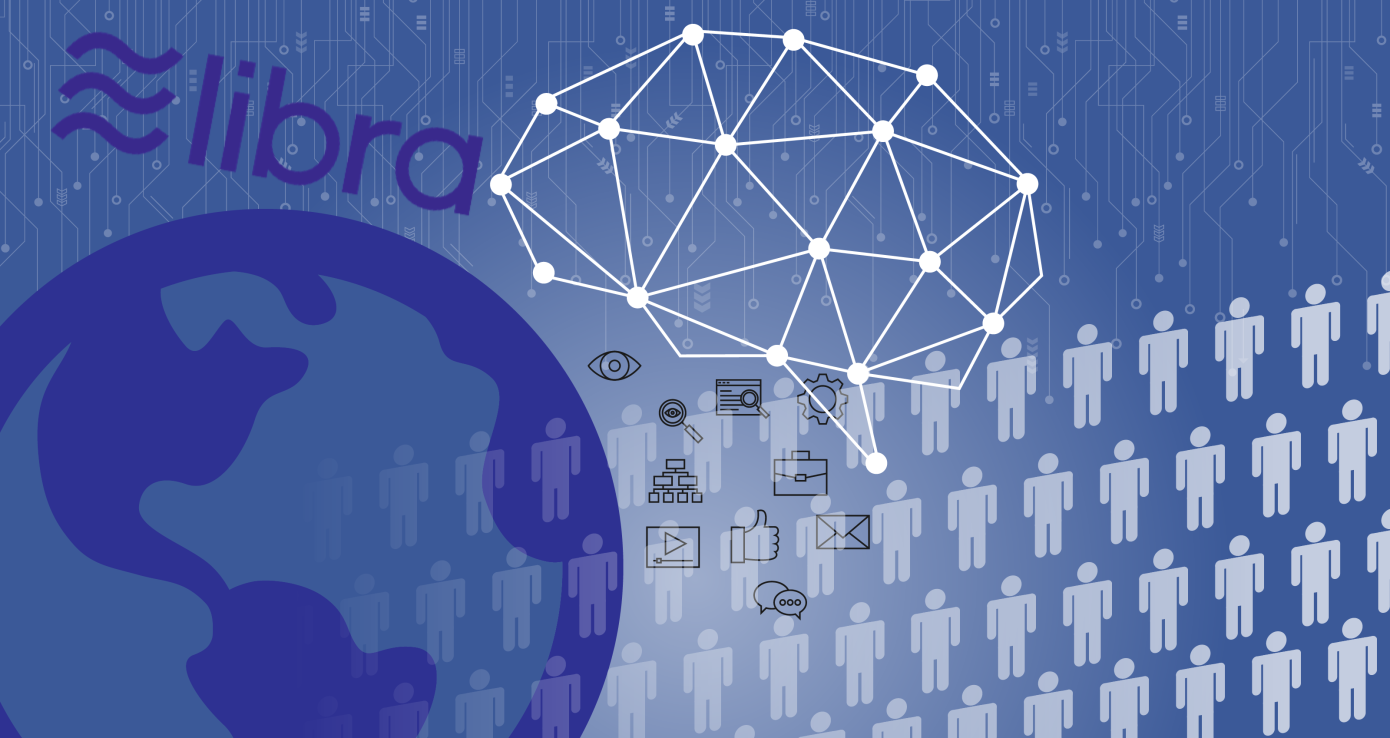As Facebook continues to lay the foundation for getting some of the world’s largest payment processing and technology companies a seat at the global monetary policy table, the company faces significant obstacles to enacting its plans from both sides of the congressional aisle.
In the second of what’s sure to be many (many many many) hearings in front of congressional committees, David Marcus, the chief executive of Facebook’s new digital payments subsidiary, Calibra, faced hours of questions from representatives on the House Financial Services Committee about the how and why of Facebook’s digital currency plans.
Facebook’s critics had questions about both sides of the company’s two-pronged approach to transforming the global financial services industry.
Marcus was able to avoid answering some of his toughest questioning by taking advantage of the grey area between Facebook’s role as the chief architect behind Libra (a financial instrument that uses blockchain technology to enable transactions using a digital currency managed by a consortium of private companies) and Calibra (the payments subsidiary that Facebook owns).
a lot of this hearing is Facebook threading the needle between "we arent a bank yet will offer financial services"
the translation to this is "we do not wish to be regulated like banks"
— rat king 🐀 (@MikeIsaac) July 17, 2019
Marcus stated in his testimony that Facebook’s plans for Libra are entirely about getting recognized by international financial bodies the digital currency the company is creating — skirting the oversight of U.S. banking and financial services regulators in favor of Switzerland’s “neutral” approach.
Representatives, rightly, have concerns about each step of the process, so it’s probably best to examine separately the currency that Facebook is hoping to create with its partners in the Libra Association and the Calibra subsidiary.
Facebook announces Libra cryptocurrency: All you need to know
First, there are significant questions around the Libra Association that Facebook assembled itself, and the regulatory responsibility that Congress and various federal agencies must oversee for the digital currency that it’s hoping to create.
The structural problems of the Libra Association and its currency
Concerns begin with the independence of the association Facebook selected to be its partner in the cryptocurrency. There are any number of ties between Facebook and the corporations and investors that are on Libra’s existing governing body. The fact that Facebook selected the initial charter members that paid $10 million for the privilege of being co-founders of the currency was not lost on representatives like Alexandria Ocasio-Cortez, the first-term representative from New York.
“The membership is open, based on certain criteria,” Marcus said in his testimony responding to a question from Representative Ocasio-Cortez about the membership of the Libra Association. “The first 27 members that have joined are companies that have shared that desire to build this network and solve problems.”
Representative Ocasio-Cortez responded, “So, we are discussing a currency controlled by an undemocratic selection of largely massive corporations.”
.@AOC listed out some of the huge tech companies within Libra’s founding members, and asked @DavidMarcus why the currency is “controlled by an undemocratic coalition” of corporations #LibraInDC pic.twitter.com/6xoQly3xwQ
— Bloomberg Originals (@bbgoriginals) July 17, 2019
The New York representative wasn’t alone in her criticism of the composition of the Libra Association, questioning whether Facebook would have undue influence over the organization.
Setting aside the independence of the Libra Association, representatives also had some pertinent questions about the ways in which the currency is structured.
Libra’s currency is set up as a stablecoin whose value is set by the Association and is pegged to a basket of global currencies that provide a hedge against the currency fluctuating in value as a result of speculative investment. Users pay in a certain amount of currency and receive an amount of Libra that they can spend at participating merchants or companies (a vast network, considering that Mastercard, PayPal and Visa are all participating in the Association).
Given the size of Facebook’s user base (which numbers in the billions), if every user put an average of $100 into the network, the Libra Association would vault into the ranks of the top 20 largest banks in America (assuming $100 billion in assets). That alone would warrant regulatory oversight by any number of federal agencies, some representatives argued.
They also expressed concern about how the Libra Association and its membership could manipulate currencies and potentially displace the U.S. dollar as the global reserve currency.
“Sovereign currencies should remain sovereign and we do not want to challenge sovereign currencies,” said Marcus in response to a particularly sharp line of questioning. “We just want to augment their capabilities in the way they can be used.”
It’s an engineer’s answer to a question about the social function of currencies. Facebook can use the basket of currency structure to argue that Libra isn’t actually a currency, but instead rests atop of several currencies to provide more stability and access for its users — and make the system function more effectively. But should Libra’s adoption begin to accelerate, the organization behind it would be able to pick currency winners and losers and begin to leverage its holdings to potentially manipulate markets, some representatives feared.
“Facebook could destabilize currencies and governments,” said California Rep. Maxine Waters. “Facebook’s entry is troubling because it has already harmed vast numbers of people.”
For some members of the Finance Committee, the structure of the asset-backed currency itself makes it resemble a financial instrument that also demands regulation from government agencies. At varying times they compared the proposed currency to an Exchange Traded Fund (because it relies on a basket of currencies to create value) or an alternative fiat currency itself.
“What exactly is this? Is it fish or fowl? And it seems to me that it’s more of a platypus and it evolves in its different parts,” said Rep. Bill Huizenga, of Michigan.
For Connecticut Rep. Jim Himes, the foreign currency risk that users could be exposed to presents an opportunity for the government to exercise oversight under investment laws passed in 1940. “They will have some degree of volatility,” said Marcus in his testimony.
“This looks to me exactly like an exchange traded fund. Backed by a series of short-term instruments in foreign currency… it even has a creation and remittance mechanism,” said Himes. If that’s true, then the Libra Association would be subject to regulations under the Securities and Exchange Commission.
Marcus said that the instrument behind Libra isn’t an exchange traded fund, because the users that will transact using the cryptocurrency through services like Facebook’s Calibra aren’t going to be speculating on the currency’s rise in value. However, that logic seems to be slightly faulty, given that all of the members of the Libra Association are expected to generate returns from the assets that are held in Libra and invested in the short-term basket of currencies.

What’s the matter with Calibra?
If the Libra Association and its mechanism for establishing a stablecoin creates one knot for regulators to untie, then the actual transaction mechanism that Facebook is proposing in the form of the Calibra subsidiary is yet another.
Here again a host of issues raise their head for members of Congress… some are associated with Facebook’s perennial privacy problems and the history of predatory behavior that reared its head yet again with the company’s $5 billion fine for continuing violations.
Others are related to the company’s policy of what conservative critics called “social engineering,” which saw Facebook boot some controversial users from its platforms (potentially denying them access to the benefits of Libra). Still another batch of concerns rests on Facebook’s ability to properly implement the know your customer (KYC) regulations that are required of banks and other financial services institutions.
The concern about Facebook’s propensity for de-platforming was topmost in the mind of Wisconsin’s Republican representative, Sean Duffy.
“Can Milo Yiannopoulos or Louis Farrakhan use Libra?,” Duffy asked. “I bring that up because both of those two individuals have been banned from Facebook.”
Marcus could only respond “I don’t know yet.”
Rep. Duffy compared the potential for Facebook to engage in the same kind of social engineering to grant access to its new payment network to the experiments that China is conducting with its social credit scoring.
“For this system, I think you’re going to see a lot of pushback from both sides,” said Duffy. “I’m also concerned about the data privacy and how we’re going to use that data… How we spend our money is really powerful information and you have access to that too.”
Calibra may face anticompetitive challenges too. Facebook has said that its payment processing app will be the only one that’s directly integrated with the company’s other social networking and communication tools, but that other potential wallets would be interoperable. The exclusive access to Facebook gives Calibra an automatic advantage over other potential payment tools and opens up the company to receive a whole host of transaction information that it would otherwise not be privy to.
And while Facebook is restricting wallet access on its platform to its own digital payments service, it’s giving free rein to developers to build other apps for Libra’s payment platform without vetting them at all.
It’s a situation that could lead to another Cambridge Analytica-style scandal for Facebook and is yet another hole in the company’s oversight.
The real risk of Facebook’s Libra coin is crooked developers
The appropriate response
The Libra project is hugely ambitious and its critics have several valid concerns about its execution. Some of the concerns about the risk that it poses are justified and it could, indeed, become a systemic player in the global financial system more quickly than its proponents are willing to accept. All of that doesn’t mean that it should necessarily be thrown out or dismissed because of the potential dangers it poses, some economists argued.
The hard work of governing demands appropriate oversight (which Facebook has been calling for — although it’s arguably doing it in the jurisdictions that will have the lightest touch over its activities).
No less an expert than the acting International Monetary Fund chair, David Lipton, has said as much in recent discussions over the role that Libra should play (or could play) in the global monetary system.
“Risks include the potential emergence of new monopolies, with implications for how personal data is monetized; the impact on weaker currencies and the expansion of dollarization; the opportunities for illicit activities; threats to financial stability; and the challenges of corporates issuing and thus earning large sums of money — previously the realm of central banks,” Lipton said of Facebook’s proposed digital currency, according to Bloomberg. “So, regulators — and the IMF — will need to step up”
But stepping up does not mean regulating Facebook’s currency out of existence.
“We look back at the the history of technology and innovation, and a conclusion is you never know at the beginning how valuable a technology will be,” Lipton said. “It requires experimentation and adaptation over years and often decades.”































Comment